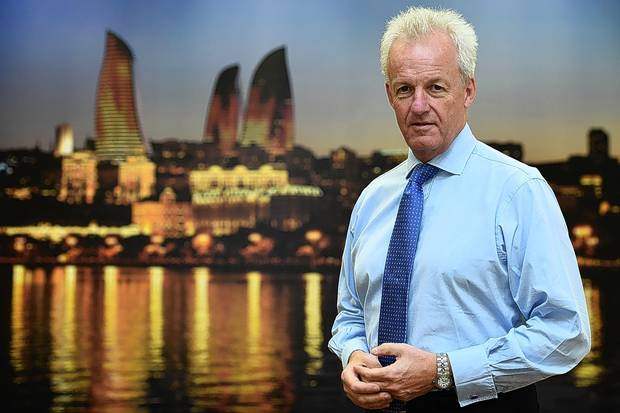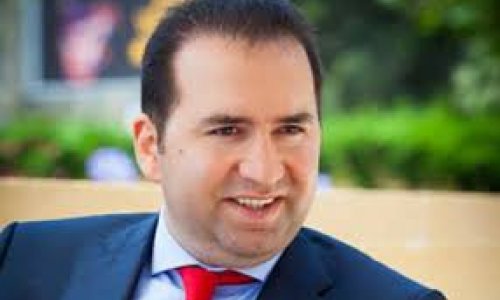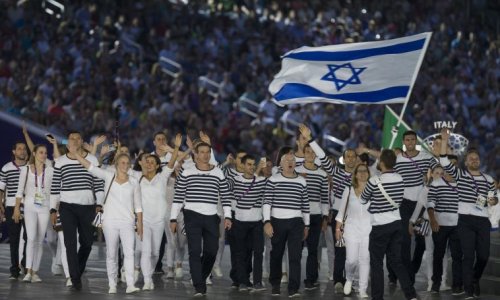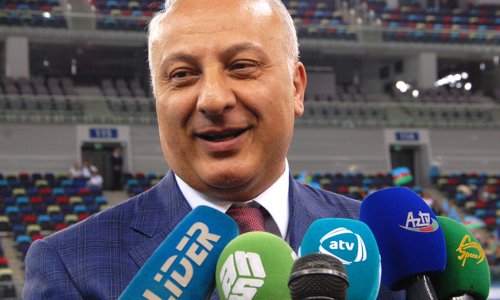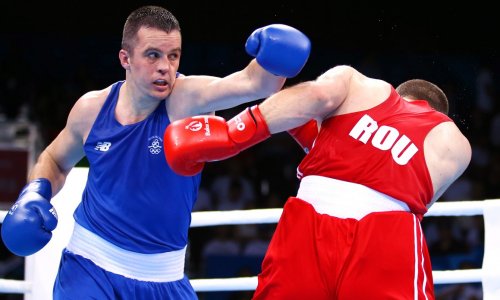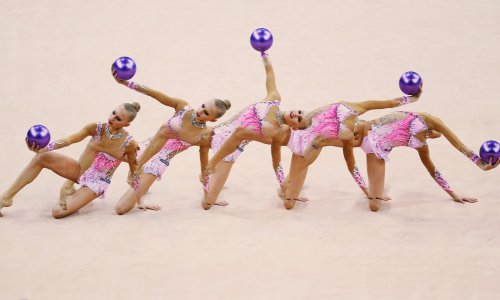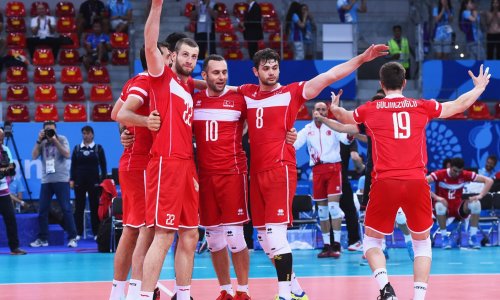He is the man who sent handwritten letters to every MP in the Commons and every member of the House of Lords to help persuade a reluctant British Cabinet to bid for the 2012 Olympic Games.
But now Simon Clegg is sipping a glass of red wine as he looks out over the Caspian Sea and ponders an arguably even bigger challenge.
For this dapper former Artillery officer has less than 40 days to complete preparations for the inaugural European Games which will be staged in Baku, capital of the former Soviet republic of Azerbaijan, in June.
"Yes, this project could be my most demanding ever,” he says as we dine in his favourite down-town steak restaurant. "This is the first time this event has ever been held, we are pretty much putting it together in just 30 months when most countries have years to prepare.”
Mr Clegg, 55, deals in big challenges. He has managed 12 British Olympic teams and then, as chief executive of the British Olympic Association, he led the successful political lobbying campaign which ended with London staging the Games three years ago.
He is also the man who became a football club chief at Ipswich and appointed the notoriously volatile Roy Keane as manager — then sacked him.
The injection of London expertise is clear to see — there are now 234 former LOCOG/2012 employees out of a current workforce of 1,500. "The scale of the project is massive,” he says.
"But we have put together a great team, this is one of the most glamorous capital cities in the world and we have adapted to the local environment and are committed to making it work.”
More than 6,000 athletes from across Europe will be representing their nations over the 17 days in 16 Olympic and four non-Olympic events. Twelve will offer qualification opportunities for next year’s Olympiad in Rio.
British stars expected to take part will include boxer Nicola Adams, table tennis player Kelly Sibley and Taekwondo’s Jade Jones. Katie Taylor, the Irish boxer, will also be competing.
"We are making sporting history in Europe,” Mr Clegg adds. "It is a huge privilege to be in that position. I feel it is very much part of the expertise of London being passed on.”
Apart from the logistical issues (Baku’s only other major event has been the 2012 Eurovision song contest), Mr Clegg also does not duck questions over Azerbaijan’s human rights record. "It should be remembered that this is a very young country which is finding its way after decades of Soviet oppression,” he says.
"Sport can be a great catalyst for change. There will be global coverage of the country which we believe will show how far it has come and will spotlight the friendliness of the people of Azerbaijan. I believe we are in a position to leave them a genuine legacy.”
Mr Clegg took over as chief operating officer of the Games last April. He had been working on the project part time for eight months before that.
His full-time role meant leaving his home in Farnham, Surrey and moving first to a hotel and then to a villa on the edge of town with wife Hilary.
He says: "She had never even heard of Baku — and to be honest would have preferred a posting in the Bahamas! But I wouldn’t have been prepared to come here unless she was with me. And we are now very settled.”
Certainly, the surroundings are impressive. London’s Olympic stadium clearly influenced the new National Stadium which seats 68,000. But the outside will show a constant, changing light and film show.
The football stadium (renamed in 1993 after Tofiq Bahramov, the linesman who decided Geoff Hurst’s shot crossed the line for England’s third goal in the 1966 World Cup final) has been adapted and modernised and will stage the archery.
There is a new National Gymnastics Arena, and an architecturally impressive 6,000-seat Aquatics Centre. Unlike London, none of the designers are big-name architects. Instead they are design-and-build construction firms, mainly from South Korea and Turkey.
The frenetic building work reflects the wealth of Azerbaijan as does the way the city comes alive at night, with almost every building lit up. The Lonely Planet guide lists it eighth among the top 10 party cities in the world.
Mr Clegg is determined to leave a positive mark. Baku has already won the right to hold a Formula One Grand Prix next year and a European Football Championships quarter final in 2020. "We think the European Games will showcase this country and provide a blueprint for the future,” he says.
(standard.co.uk)
www.ann.az
Follow us !

